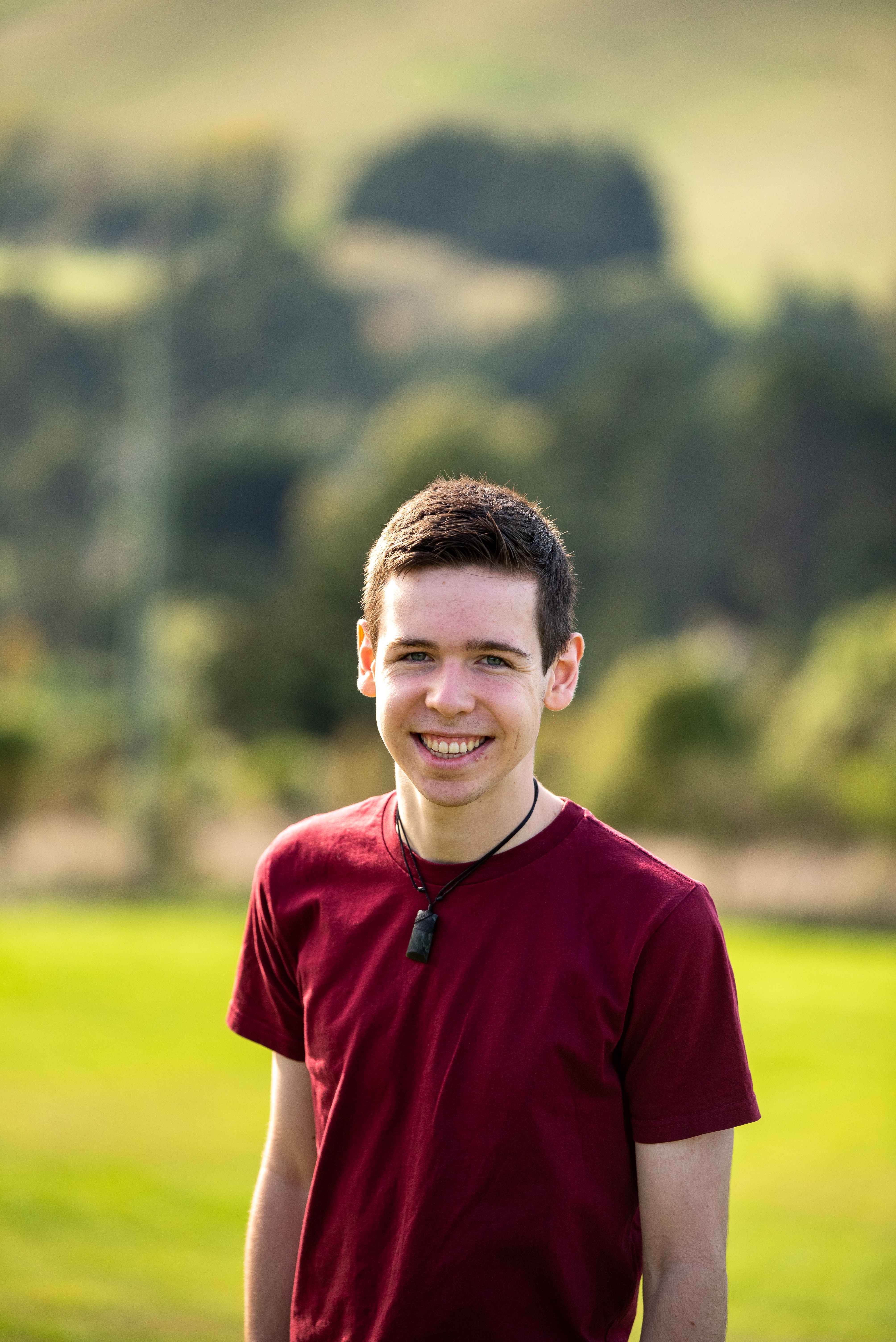Quinn was diagnosed with a rare form of brain cancer at seven years old.
When I was seven years old, I suffered a stroke, and my doctor soon discovered that this was caused by a bleeding brain tumour. One month later, I was diagnosed with Primitive Neuroectodermal Tumour (PNET) – a rare form of brain cancer, which is only seen in one or two rangatahi in Aotearoa annually.
“As I was moved from the neurology ward to the Starship Blood and Cancer Centre, I soon started to piece things together. I knew what cancer was and that it was a bad thing. My Aunty J has been battling with cancer her whole life, so I was always aware of the illness and that you lose your hair.
“When my Mum broke the news to me, I started asking questions like “will my hair fall out like Aunty J, and the other kids on this ward?””
A cancer diagnosis is difficult to process at any age, but for rangatahi, it can present unique challenges, particularly as it can disrupt life at an early age.
“As a stubborn child, I wanted to stay awake for my cancer procedures. It took three times before I was comfortable enough to lie flat on my tummy, with my head bolted to the table for radiotherapy.
“I felt like I had grown and matured way before I should have, and no longer had the same outlook on life that others my age did. They didn’t have a near-death experience, have friends pass away, or have anything taken away from them.
“I realised how much I was holding on to this part of my life, and that it was negatively impacting me and my outlook. I needed to change my mindset and see things as ‘it is what it is’ and know that I will never be the same person again.”

Rangatahi managing a cancer experience can face additional challenges, including dealing with friendships and with continuing school after treatment and physical changes. This can be an exceptionally lonely time for rangatahi, as they may not have a support system that understands what they are going through.
"Everything changed after my diagnosis. I was away from home and school for a whole year. Nothing was ever the same once I returned to primary school. Not only did I have the ‘expected’ cancer issues of hair loss, suppressed immune system, and lots of medical appointments, but I had permanent hemiparesis (weakness or inability to move one side of the body) and fatigue.
“I was unable to participate in activities like P.E, and I was often left out by teachers and peers - sitting on the sidelines, which didn’t make me feel great. I was a very active child before I got sick, so this was difficult to eventually come to terms with.
"As my mobility got worse, I needed to use my wheelchair. I didn’t feel safe with just anyone pushing me around at school, and when I set boundaries and chose specific people that I felt comfortable with, other peers would get annoyed.
“I couldn’t relate to my peers anymore. After my friendship group started excluding me, I began having trust issues, which didn’t help things once I reached high school. Most break times I would sit in a classroom or a corridor by myself. I was occasionally allowed to hang out with my brother and his friends, but I know it’s only because they felt sorry for me.
“I became very isolated and started spending all my time alone in my room. It was tough and started affecting my mental health, to the point that I decided to leave mainstream school altogether and start correspondence at the start of year 11.”

Rangatahi experiencing a cancer experience can find it difficult to relate to others. Canteen is a safe space to connect, share the tough stuff, and get a break for cancer.
“I had a great medical team cheering me on, as well as my Mum, Dad, and brother, who were there every step of the way.
“It was a no-brainer for me to join Canteen when I turned 13. I knew of the positive impact the organisation had on rangatahi, and that there were others in the same situations as me.
"I honestly just wanted to make friends, who could relate to my weird, not-so-normal life. It significantly improved my mental health and I have made some of my best friends through Canteen.”

Canteen programmes and camps give rangatahi some much-needed space away from the daily pressures of being impacted by cancer.
“I joined the Canteen Leadership Programme when I turned 16. The Leadership Camps are a crucial part of the support I received through Canteen. Spending a whole weekend with other rangatahi who have been on a similar path to me, instantly connecting and becoming part of the whānau - there’s nothing better than that. Once I arrive at camp, I am instantly happier and feel like I belong somewhere.
“I’ve been able to socialise outside of Canteen with the friends I’ve made through Leadership. Whether it’s been three, six, or nine months since we last saw each other, we can always pick up where we left off. Just knowing that I have people I can turn to, who know what I’m going through and never have any judgement, it’s really amazing.”














